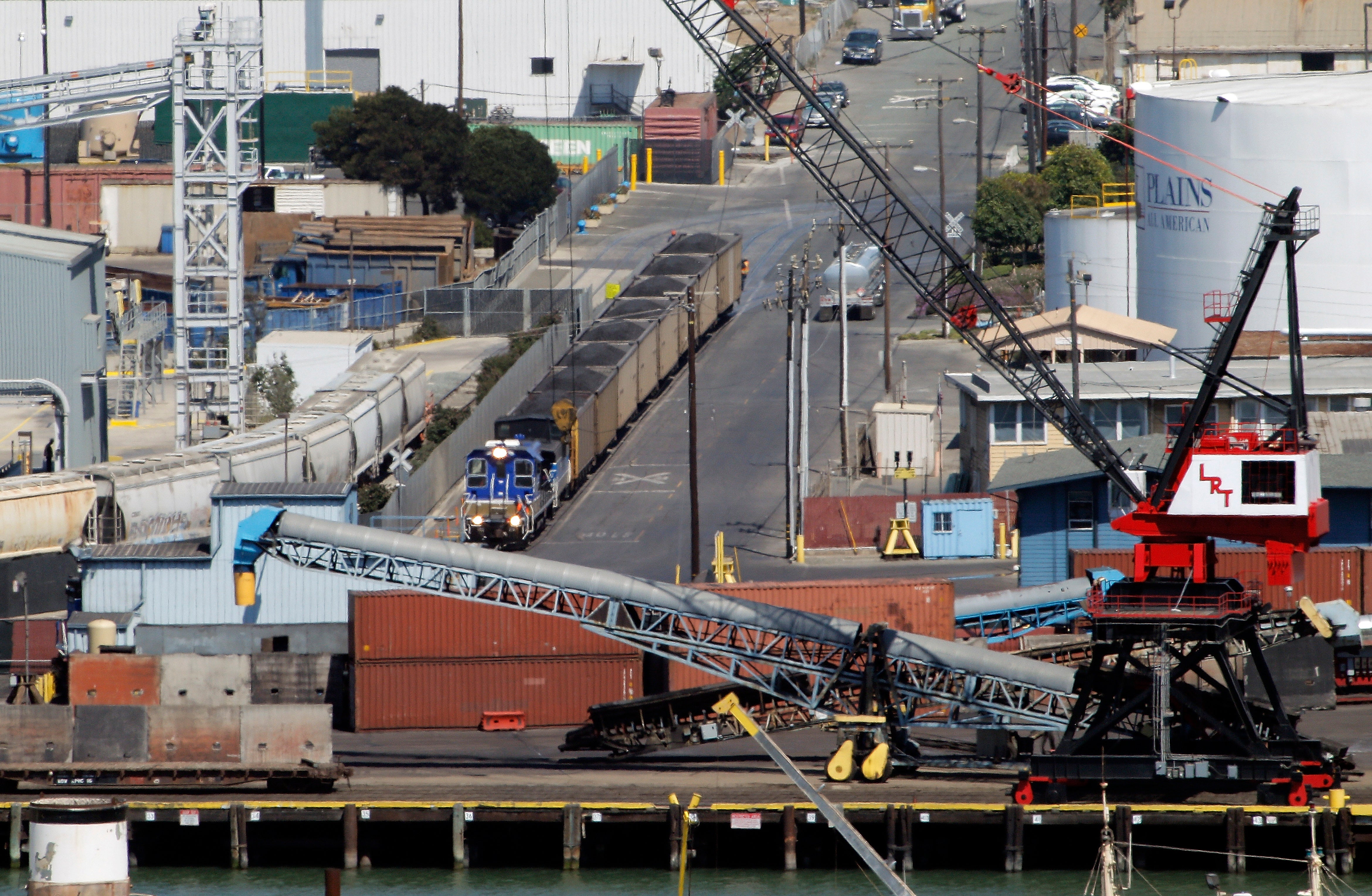Settlement bans coal storage in California city by 2027
A private California port terminal that handles and stores coal from Utah before it's shipped overseas to Asia must halt those operations by the end of 2026

Your support helps us to tell the story
From reproductive rights to climate change to Big Tech, The Independent is on the ground when the story is developing. Whether it's investigating the financials of Elon Musk's pro-Trump PAC or producing our latest documentary, 'The A Word', which shines a light on the American women fighting for reproductive rights, we know how important it is to parse out the facts from the messaging.
At such a critical moment in US history, we need reporters on the ground. Your donation allows us to keep sending journalists to speak to both sides of the story.
The Independent is trusted by Americans across the entire political spectrum. And unlike many other quality news outlets, we choose not to lock Americans out of our reporting and analysis with paywalls. We believe quality journalism should be available to everyone, paid for by those who can afford it.
Your support makes all the difference.A private port operator in the San Francisco Bay Area that stores coal from Utah before it's shipped to Asia has been given until 2027 to continue those operations under terms of a settlement.
Officials in Richmond where the port is located, agreed to the deal with the Levin-Richmond Terminal Corp. that runs the port, Utah-based coal company Wolverine Fuel Sales, the state of Utah and Phillips 66, which exports petroleum coke through the port. “Petcoke" is a byproduct of oil refining.
The Richmond City Council passed an ordinance last year banning the handling and storage of coal and petcoke within the city by January 2023. The move, driven by concerns about possible health complications from coal dust, prompted lawsuits in federal and state courts from the three companies and Utah, which all argued it was unconstitutional.
Utah said the terminal “sustains a significant component of Utah’s economy." Spokespeople for Utah's governor did not immediately respond to an email seeking comment.
Environmental groups that joined Richmond to fight the lawsuits cheered the settlement as a win for communities that want to better control health dangers for their residents.
“It’s a blueprint for other cities and counties in California to address the public health threat that may be presented by coal and petcoke handling,” said Aaron Isherwood, managing attorney with the Sierra Club which intervened in the case,
The settlement, reached Friday, gives the companies until Dec. 31, 2026, to end the storage and handling of coal at the facility. During that period the companies must follow enhanced dust control measures. The City Council must approve the settlement by next February for its provisions to take effect.
Concerns about climate change have dampened demand for coal in the U.S. Coal-producing states such as Utah are shipping it to Asia through West Coast ports, a move that has faced resistance from environmental advocates and elected officials, mostly Democrats.
In the San Francisco Bay Area, the Levin-Richmond Terminal and the Port of Stockton are the main places through which coal is shipped. A long-running effort to build a terminal in Oakland for Utah coal has been stymied by opponents.
The ports in the San Francisco Bay Area accounted for about 3% of total U.S. coal exports in the first half of 2021, according to data from the U.S. Energy Information Administration.
Handling and storage of coal makes up about 65% of the Richmond terminal's business, while petcoke exported for use to manufacture aluminum and other products makes up another 15%, according to legal filings. It also handles recyclable materials. The company has about 60 employees.
Settlement talks began this February, with the eventual agreement providing more time for the companies to transition to handling other commodities at the terminal.
The agreement is intended to “strike a proper proper balance between protecting the public from the health hazards of coal and petroleum coke storage and handling, while also protecting existing jobs and providing sufficient time for businesses to transition," according to the settlement.
James Holland, vice president of facilities, equipment and environment, and Patrick O’Driscoll, chief operating officer for the Levin-Richmond, did not immediately respond to an email seeking comment about whether the company has plans for how to use the terminal instead.
Wolverine Fuels, meanwhile, argued in court that an inability to use the Richmond port would significantly impact its business by requiring longer transport for the coal, possibly to ports in Mexico. Most of the company's coal goes to Japan. The company argued that longer transport routes for its product would result in more greenhouse gas emissions.
Phillips 66 is considering transitioning its San Francisco Refinery to biofuels.